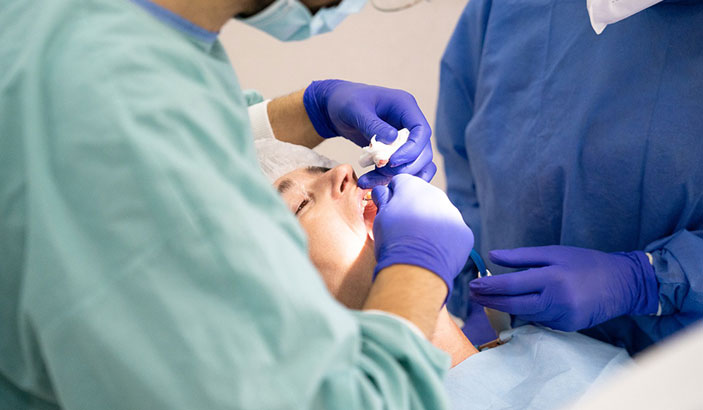A trip to your dentist could be a result from several things such as a gum infection or the need for a tooth extraction. Depending on the procedure you want, it may be necessary to abide by certain oral care routines temporarily to prepare. However, you can always resume your daily routine once the treatment subsides. Here are tips for post-treatment care after a dental appointment.
- Aftercare for a Tooth Extraction. The aftercare practices of an extracted tooth vary depending on some factors. However, most people report that the pain decreases after about three days. The main thing you need to do is to care for the sensitive area where the tooth once was. Keep the area clean. Here is what to do after a tooth extraction in the first two days.
- Get plenty of sleep.
- Change the gauze regularly to keep the area clean and dry
- Allow time to heal
- Do not smoke
- Take any medications that the dentist recommends
- Avoid alcoholic beverages since they will interrupt the healing process
- Employ saline rinses
- Brush and floss as directed by your dentist
- Eat soft food and avoid toothpicks
- Aftercare for a Dental Filling. The primary reason people feel pain after a dental filling may be because the dental filling has caused some sensitivity in the gum area. The best course of action is to take an anti-inflammatory medication such as tylenol, ice the area every twenty minutes, or consult your dentist for further instructions.
- Post Treatment After Crown/Bridge Prep. Some discomfort is normal after a crown or bridge preparation. After the first appointment for a crown and bridge procedure, your dentist will place a temporary provision on the tooth to protect it while he or she makes the custom restoration. If the temporary provision comes off between appointments, slip it back on and call your dentist. You may also experience sensitivity to hot and cold food or drink but this should only last a few days after the dental treatment. If the sensitivity persists longer than one week, call your dentist for a follow-up evaluation. Also, contact your dentist if your bite is not correctly balanced. Lastly, ensure that you watch what you eat for the first few days and avoid sticky or hard foods. Crowns also require proper care, including brushing and flossing twice per day.
- Dental Aftercare for Children. Children with a tooth that needs extracting will undergo a slightly different procedure. A dentist will put children under general anesthesia before any dental procedure. This means that your child will be asleep and not feel any pain during the dental procedure. However, the healing process is similar to that of an adult. Dentists recommend that parents and caregivers monitor the child’s healing and oral health closely and watch out for symptoms such as pain. Also, ask your child questions as to whether or not they feel pain. If your child receives fillings or crowns, you can expect them to say they feel that their lips feel numb. They may also experience gum sensitivity or redness after receiving fillings. Some parents choose to use Benadryl and dab some on their child’s gums to help eliminate the sensitivity. Apply the remedy for several days to make your child more comfortable.
Following these instructions will help you improve your comfort after a dental procedure and promote healing of the area. Failing to follow these instructions will leave the area prone to bacteria, prolonging the healing time.









